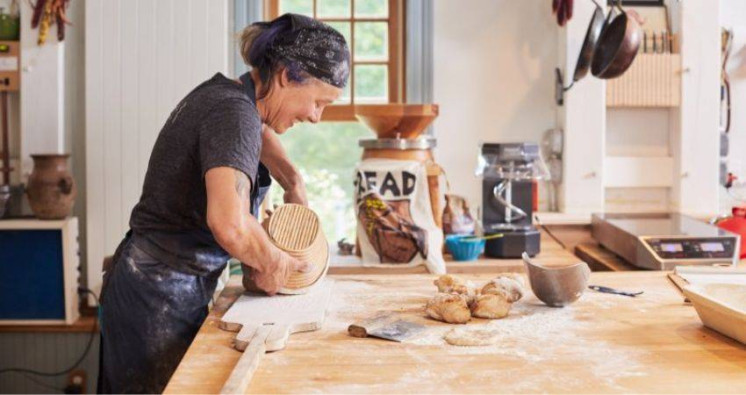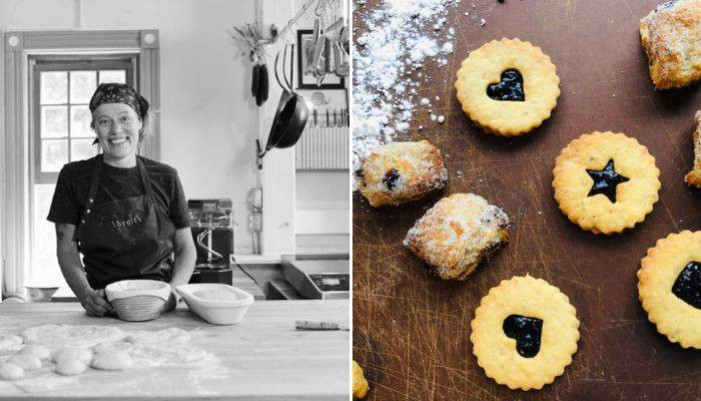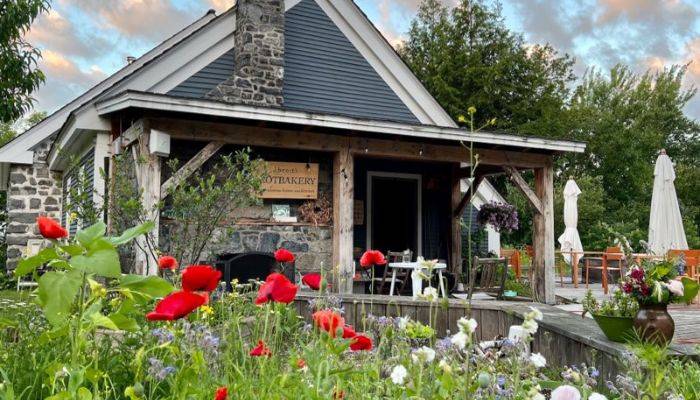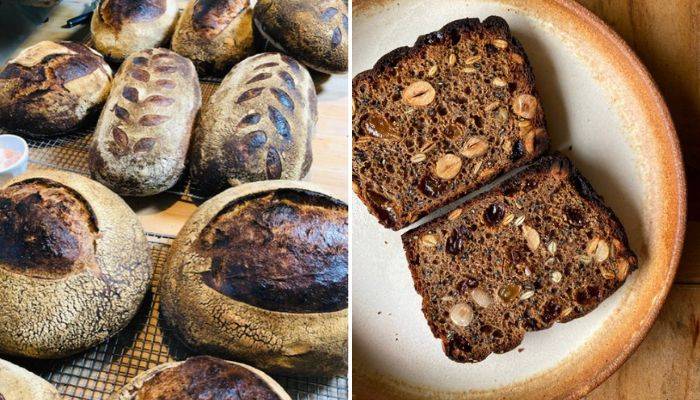
For those that have always wanted to learn how to bake their own sourdough, getting started can seem like a daunting task. New bakers have access to a wide range of information through the internet and detailed cookbooks released in recent years. Yet even with all of the tools at a home cook's disposal, the world of bread baking can seem distant. Questions about flavor, texture, and timings often pop up during the sourdough production process - which is where the insight of someone who is an expert at this long standing tradition of tasty fermentation can come in handy.
Luckily, Vermont and its home bakers have access to the priceless knowledge of a bread expert. At Brot Bakehouse School and Kitchen in Fairfax, owner Heike Meyer works to teach the community about all things bread, and baking. Whether you're new to baking or a veteran to the grain game, Brot Bakehouse has a class for you. Even more, Meyer is committed to introducing regional grains to the home baker's kitchen. Meyer answered a few questions about her philosophy on bread education and local sourcing below.
Your background seems rich in all sorts of bread-related education through travel, time, and an appreciation for a variety of cultures. What makes Vermont unique? Why bring your expertise here?
I love being in Vermont! People here have a strong relationship with the land and you can see that in the appreciation of locally made foods. On my first trip to Vermont [living in New York at the time] I felt like this place was special - and I still feel like this every time I come back home from traveling.

Teaching is clearly a large component of Brot Bakehouse: how do you see home bakers taking more of an interest in regional, sustainable bread?
We try to educate people about the value of good grain, one that is grown in the region, by a farmer who is out in the field, caring for the crop and the soil. Those farmers are the stewards of the land and I like people to understand that good bread and good pastries are inextricably connected to the land. I think once people get that there is excitement, and there is care. And maybe people (re-)discover the wonderful taste of a freshly baked bread with good grains - be it from a local baker or at home.

What gets you most excited about regional grains, and how does that influence your work as an educator in the community?
The taste! I’ve always used organically grown grains and flours but knowing where it’s grown and by whom, feels like a step up. I’m excited that people (especially kids) are now able to actually see a field of grains in their neighborhood. I’ve had many kids (and adults!) in my classes who do not know how a wheat plant looks like - and that’s what they are eating all the time! It’s about time to bring that knowledge back.
Tasty bread seems like a common language between people. How do you see the practice of bread making as a connector in the food system?
Bread has always brought people together, braking bread is a universal language. I always tell the story in my classes that when I travel I visit bakeries, no matter if I speak the language or if I am a complete stranger to the culture of that place - there is always a bakery. And when you walk in you communicate through gesture, tasting, a language that’s understood around the world - I love that! It really breaks the ice everywhere.

Do you have any connections to farms or local businesses that you would like to highlight?
All my local suppliers and all my baker-colleagues are worth a shout-out; they are great farmers, bakers and food producers. I am always in awe of those who are growing our food, that’s a tough life with many long hours and hard work, often under-appreciated. Same for bakers and everyone I know and work with. If I would mention all those people I admire it would fill up this page!
Photos courtesy of Heike Meyer













